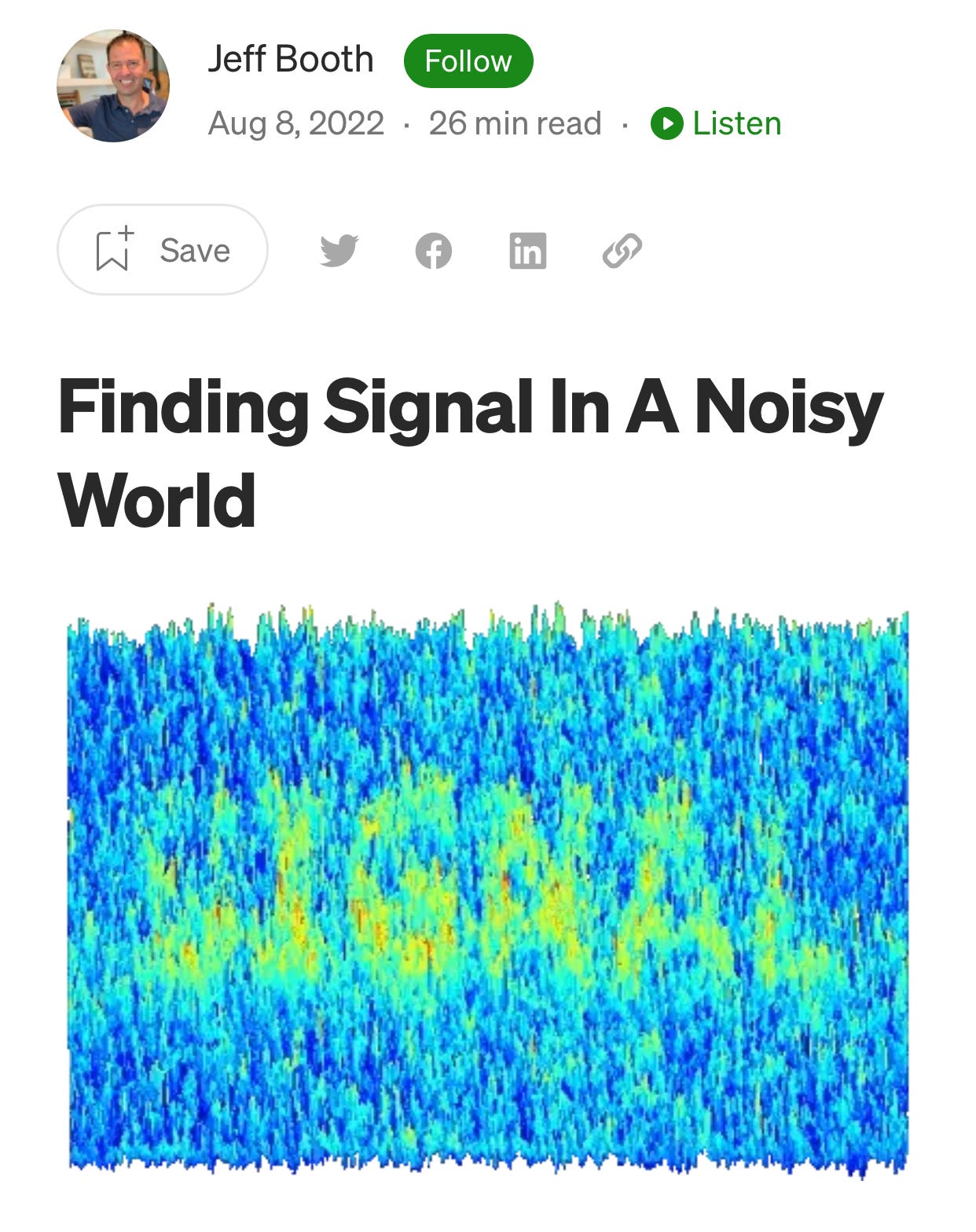How To Make Decisive & Successful Decisions
Inspired by Jeff Booths article ““Finding Signal In A Noisy World”
Jeff Booth’s article discusses the idea of "signal" and "noise" in the context of decision making and how to distinguish between the two.
He argues that in today's world, there is a lot of noise in the form of information and distractions, which can make it difficult to find the signal or important information.
Jeff suggests that by being selective about what information you consume, being aware of your own biases, and being willing to change your mind, you can improve your ability to find signal in a noisy world.
He also mentions that having a clear and defined purpose can help filtering in decision making.
The article suggests a few ways to improve your ability to find signal in a noisy world:
Be selective about what information you consume: Be intentional about the sources you choose to consume information from and be discerning about the information you take in.
Be aware of your own biases: Recognize that your own perspective and beliefs can influence what you consider to be signal and noise.
Be willing to change your mind: Keep an open mind and be willing to adjust your beliefs in light of new information.
Have a clear and defined purpose: Having a clear goal or purpose can help you focus on what information is most relevant and important to you.
Take time to reflect and introspect: Reflecting on your own thoughts and decisions can help you to better understand your own biases and how they influence your perception.
Seek out diverse perspectives: hearing different opinions and perspectives can help you to identify and challenge your own biases, and increase your chances of finding signal amidst noise.
Experiment and Test: Experimentation and testing can help you to validate or invalidate assumptions and hypotheses.
Practice mindfulness: Mindfulness practices such as meditation and yoga can help to improve focus, concentration, and attention.
Learn to filter information: Developing the ability to filter and process information quickly can help you to quickly identify what is important and what is not.
Take breaks: Taking regular breaks from consuming information can help to prevent information overload and allow you to return to your task with a fresh perspective.
Seek feedback and criticism: Seek feedback and criticism from others can help you to identify areas for improvement and to challenge your own assumptions and biases.
Learn to prioritize: Prioritizing your tasks and responsibilities can help you to focus on what is most important and to avoid getting bogged down in less important details.
It's important to note that it's a continuous process, and it's good to adopt some of these practices in your life.
It will take time and practice to develop your ability to “find signal in a noisy world,” but with persistence and effort, you can improve your ability to make better decisions and achieve your goals.
Thanks to Jeff Booth for his contributions to the bitcoin community and to critical thinkers everywhere.
Stay strong,
Brandon





